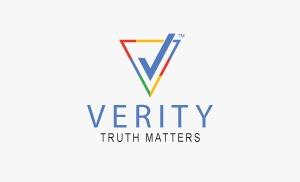
WOKE-O-METER Update: Enhanced Evaluation of the Education Sector Including Union and Governmental Dynamics
As part of our commitment to delivering balanced and detailed analyses across various sectors, we have updated the WOKE-O-METER to offer a nuanced evaluation of the education sector. This update emphasizes the roles of union involvement and governmental pressures, aiming for a comprehensive view of the educational field.
Evaluation Process and Criteria
Data Collection: Our foundation is rigorous data gathering, which now encompasses metrics on academic performance, policy documents, feedback from teachers and students, and independent studies. The recent inclusion of data on union activities and government directives enriches our analysis.
Criteria and Scoring:
- Academic Excellence and Curriculum Quality (20 Points): Evaluates the educational content quality and institutions' academic performance.
- Access and Inclusivity (20 Points): Assesses education accessibility for all demographics and efforts towards creating inclusive environments.
- Teacher Qualification and Satisfaction (20 Points): Focuses on educator qualifications and job satisfaction, influencing education quality.
- Union Involvement (20 Points): Examines the impact of teachers' unions on policy, curriculum, and teacher welfare.
- Governmental Pressure and Policy Influence (20 Points): Looks at government interventions in education and their effects on autonomy and efficiency.
Each category can earn up to 20 points, leading to a maximum total of 100. The evaluation relies on objective indicators for unbiased results. For transparency and accuracy, we record all data and scores on the blockchain.
WOKE-O-Meter Verdict: Detailed Education Sector Assessment
This advanced WOKE-O-METER provides an insightful overview of the education sector, considering the significant roles of unions and government. It highlights strengths and areas needing attention, offering a holistic view of educational influences.
Scoring Methodology
Institutions are rated on a -10 to +10 scale, with scores reflecting their ideological leanings from "Strongly WOKE (Left)" to "Strongly AWAKE (Right)."
Data Collection and Updated Metrics
We utilize a Comprehensive Education Bias Rating system, incorporating triggers and fields like public sentiment, third-party audits, and political affiliations/donations, to assess:
- Curriculum transparency and content
- Faculty composition and political leanings
- Social activism and ideological balance
- Ethical sourcing and financial transparency
Objective and Comprehensive Analysis
Our goal with the updated WOKE-O-METER is to offer a neutral, data-driven tool for analyzing the education sector. By integrating a broader range of factors, including union and government dynamics, we provide stakeholders with a rich resource for understanding and enhancing educational environments. Our use of blockchain technology underscores our commitment to reliability and transparency in educational assessment.